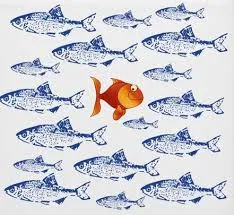Does OBSESSION Help?
Does OBSESSION Help? Dude, my answer is a categorical YES and NO. YES for many reasons and NO for many reasons as well. So, WHAT is the first thought that comes into your head WHEN you hear the word OBSESSION? Are you seeing a semblance of someone WHO seems obsessed with something? OR even someone with obsessive-compulsive disorder [OCD]❓❓❓
WHAT if we will hear from experts that most successful people on this planet are actually proven obsessive? OBSESSED with becoming successful, OBSESSED with being the best they can, OBSESSED to consistently prove his/her supremacy by lording over the competitive field OBSESSED to be the #1 in his/her chosen field OR initiative, with a far second lagging far far behind? NOW, before we get into a topsy-turvy situation, let's go back to semantics and align that OBSESSION is [JUST] a passion that has taken over everything. Theoretically, this is a correct statement BUT we also have to make sure that the OBSESSION remain healthy and DOESN'T cross the fine line between HEALTHY versus UNHEALTHY📗📙📘Now, here comes this conflicting overlap between PASSION and OBSESSION. Are they synonymous? NO sirrrrrs. Instead, OBSESSION is just a PASSION that has taken over everything. Now, let us plot the most common demarcation lines. WHAT IF you feel PANIC and GUILT if you DON'T do it? A healthy OBSESSION is WHEN you want to do something and you will always make time for it, no matter WHAT💧💧💧
Late nights and early morning if you will always make time for it, NO MATTER WHAT. It becomes UNHEALTHY when it DOESN'T happen for whatever reason and you feel PANIC and/or GUILT about it. And WHEN you radically restrict your life, LIKE your parents are NOT asking you to be better in your choices in life BUT it is WHEN you say NO to actually going for dinner as you know that PANIC and GUILT will creep in. What's our realization here? You seem to focus ONLY on the short term and NOT on the long term. So, DOES OBSESSION HELP? YES absolutely so long as you DON'T CROSS THAT FINE LINE❎❎❎
Mother of all scares is when paranoia creeps in. OBSESSION can greatly affect your mental health, till you become so focused on something that you close your mind off to many other options that could potentially offer you a much better balance in your life. And WHEN you keep pushing yourself EVEN IF it is making you UNWELL, please DON'T ignore our bodies as studies show, they are 'GREAT INDICATORS' when something is good OR bad for us. So, DOES OBSESSION HELP? YES absolutely so long as you DON'T CROSS THAT FINE LINE❕❕❕




























































